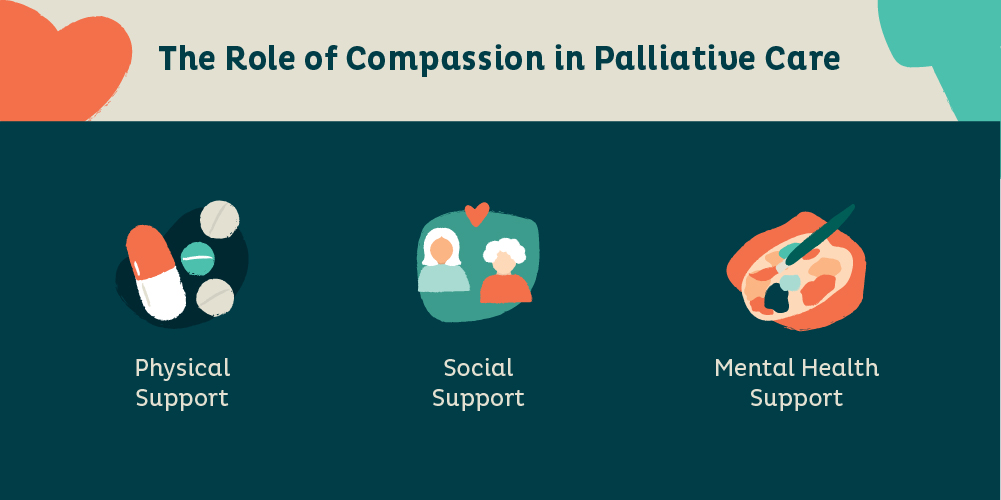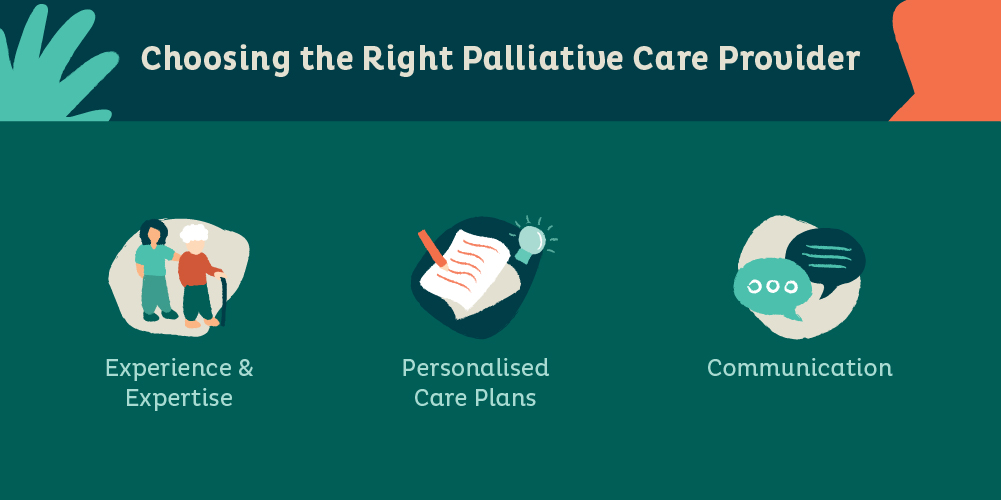
Providing Compassionate Palliative Care For Older Australians
Palliative care is a concept that can often lead to feelings of fear or confusion among older people and their loved ones. That’s why at Whiddon, we believe compassion should play a crucial role in ensuring the well-being and comfort of older Australians during the later stages of their life. This can be achieved through various techniques to alleviate the person’s emotional and physical pain, providing care in their most vulnerable moments. Below, we explore the part compassion plays in palliative care and its impact on effective aged care services.
What is Palliative Care?
Palliative care is a specialised form of medical care that focuses on improving the quality of life for individuals facing life-limiting illnesses or chronic conditions. While it is commonly linked to end-of-life care, palliative care can also be provided at any stage of an illness. Beyond physical symptoms, this approach also aims to cover various aspects of a person’s well-being, including emotional, social, and spiritual needs. Depending on circumstances, palliative care is generally provided at residential aged care centres with tailored facilities or in the comfort of your own home with a caregiver or regular visits from a professional.
The Role of Compassion In Palliative Care
Compassion is at the centre of palliative care and is the foundation upon which comfort, empathy and dignity can be provided to older Australians. It recognises the need for unique care tailored to the needs of every individual and helps create a supportive environment where older people can still retain their autonomy. Based on a holistic approach, this type of care involves establishing and nurturing meaningful relationships between patients, aged care workers and families, ensuring effective communication and support alongside medical treatment.
As a result, compassion can be promoted throughout the various forms of palliative care including:

- Physical Support: One of the main aims of palliative care is to reduce the impact of physical pain and fatigue due to illnesses and their treatment. This may be achieved through medication, physical therapy, and massage treatments.
- Social Support: Loneliness and isolation are ever-present issues within the ageing population. As part of an individual’s aged care plan, they may be encouraged to spend time with other community members, residents, and staff in social activities such as cooking classes. Care workers can also provide compassionate support, acting as personal companions in cases where the individual is unable to partake in these group activities.
- Mental Health Support: Palliative care may also include strategies to manage mental well-being and emotions such as anger or anxiety that commonly emerge due to these challenging circumstances. Activities such as arts and crafts, music therapy and regular exercise can help reduce stress and strain. Mental health professionals or aged care workers can also offer emotional assistance to cope with concerns that recipients may have about their situation.
Choosing The Right Palliative Care Provider
When picking a palliative care provider for yourself or a loved one, it’s essential to consider a few factors including:

- Experience & Expertise: Look for aged care providers with experience and expertise in palliative care. They should have a team of professionals trained in various methods to assist with pain management and support.
- Personalised Care Plans: Each person’s illness requires their own needs and preferences. Search for a provider that offers individualised care plans for their clients.
- Communication: Opt for providers that provide ongoing communication and collaborate with recipients and their families during the palliative care process.
At Whiddon, our award-winning relationship-based model of care extends to every service we provide. This means compassion is at the heart of everything we do. Our focus is on building meaningful relationships to ensure residents and clients receive aged care personalised for their situations while working with families to keep them involved throughout the journey. We offer specialised palliative care services at residential aged care homes and as part of our home care nursing services. Get in touch with us today for more information on how we can help you.




